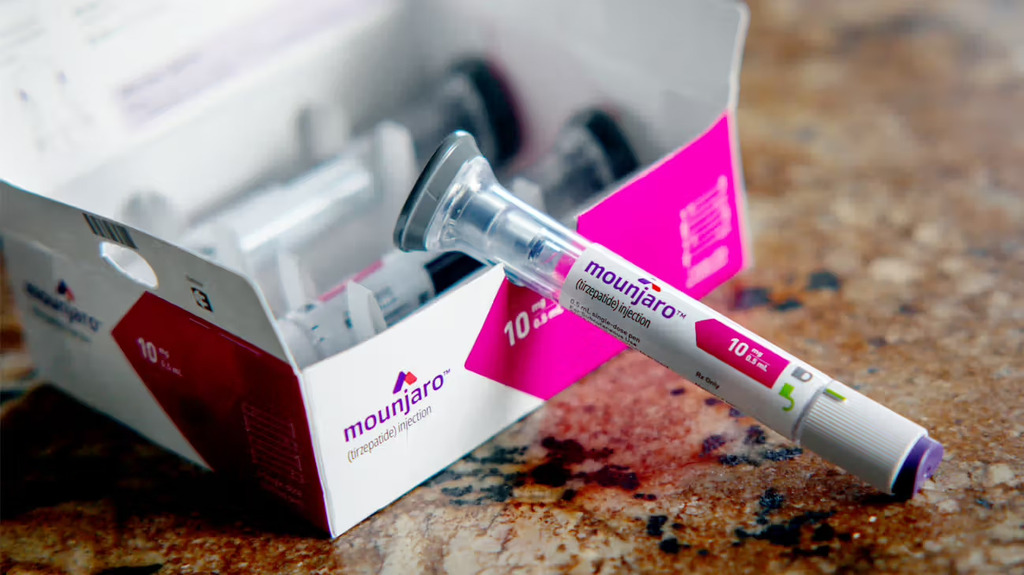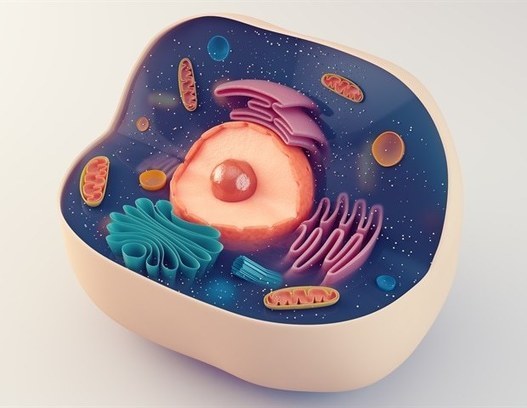
Mounjaro Beats Ozempic, So Why Isn't It More Popular?
www.medscape.com
July 20, 2024, 12:24 p.m.
I can explain that I prescribed a glucagon-like peptide 1 (GLP-1) receptor agonist because the patient had diabetes and was overweight, and multiple studies show that this class of drug leads to weight loss and reduced mortality risk. But then I get the follow-up: Sure, but why THAT GLP-1 drug? Why did you pick semaglutide (Ozempic) over tirzepatide (Mounjaro)? Here's where I run out of good answers. Sometimes I choose a drug because that's what the patient's insurance has on their formulary. Sometimes it's because it's cheaper in general. Sometimes, it's just force of habit. I know the correct dose, I have experience with the side effects — it's comfortable.
Share on

Tattoo Ink Found to Be Contaminated With Bacteria
www.medscape.com
July 20, 2024, 12:16 p.m.
When US researchers tested 75 unopened and sealed tattoo and permanent makeup inks from 14 different manufacturers, they discovered that about 35% of the products were contaminated with bacteria. They detected both aerobic bacteria, which require oxygen, and anaerobic bacteria, which thrive in low-oxygen environments like the dermal layer of the skin.
Share on

How Music Synchronizes Heart Rates and Collective Emotions
neurosciencenews.com
July 19, 2024, 7:52 p.m.
Listening to music synchronizes heart rates within individuals more reliably than between different people. This synchronization depends on physiological responses rather than mood or music preferences. The findings help explain the collective emotional experiences of audiences and suggest ways to enhance theater performances. The research offers valuable clues for improving the performing arts.
Share on

Early Inflammation Linked to Midlife Cognitive Decline
neurosciencenews.com
July 19, 2024, 7:50 p.m.
A new study finds that higher inflammation in young adulthood is associated with reduced cognitive function in midlife. Researchers discovered that inflammation due to factors like obesity and smoking can impact memory and processing speed. This link, previously noted in older adults, now extends to early adulthood, suggesting long-term brain health effects. Reducing inflammation through lifestyle changes may help prevent cognitive decline.
Share on

Mind-Bending: Psilocybin Reshapes Brain Networks for Weeks
neurosciencenews.com
July 19, 2024, 7:42 p.m.
A new study reveals that psilocybin, the active compound in magic mushrooms, temporarily disrupts brain networks involved in introspective thinking, like daydreaming and memory. These changes persist for weeks, potentially making the brain more flexible and improving mental health. The findings could pave the way for psilocybin-based therapies for depression and PTSD. The research underscores the importance of using these drugs under medical supervision.
Share on

Blocking Inflammation Protein Extends Lifespan
neurosciencenews.com
July 19, 2024, 7:41 p.m.
Researchers discovered that inhibiting the protein IL-11 extends the lifespan of mice by up to 25%. The treatment also reduces cancer and diseases related to aging. This breakthrough offers potential for future anti-aging therapies in humans. Further clinical trials are necessary to confirm its safety and effectiveness.
Share on

Le microbiote intestinal des pères a des conséquences inattendues sur leurs enfants
www.sciencesetavenir.fr
July 19, 2024, 3:21 a.m.
Le microbiote intestinal, c'est-à-dire l'ensemble de micro-organismes qui vivent dans nos intestins, a une influence sur l'immunité, la santé mentale, et même le vieillissement. Et il pourrait même jouer un rôle sur la santé de nos enfants !
Share on

Why CAR-T Therapies Hard To Scale, And How Challenges Be Solved
invivo.citeline.com
July 10, 2024, 3:51 p.m.
Chimeric antigen receptor T-cell (CAR-T) therapies have revolutionized the treatment of blood cancer, but scalability remains a major challenge. Experts explain how technologies such as chip-based miniaturized models and automation could be part of the solution.
Share on

World's first CAR-T cell therapy for a child with lupus
medicalxpress.com
July 10, 2024, 3:50 p.m.
This procedure was unusual since CAR-T cells had previously only been used for leukemia or lymphoma and during studies on adults with certain advanced autoimmune diseases. These cells had previously never been used for treating children with autoimmune diseases.
Share on

Dual CAR-T Therapies Are Becoming More Established
www.medscape.com
June 29, 2024, 6:58 a.m.
"There are still biological barriers to overcome. For example, three out of 10 patients receiving CAR-T therapy for relapsed/refractory large B-cell lymphoma fail because of antigen loss. Dual CAR-T therapies could overcome this resistance mechanism and increase efficacy. We have different strategies, such as tandem CAR-T cells, bicistronic CAR-T cells, cotransduction, and coadministration. Furthermore, there are ongoing studies like Zamto-cel, Prizlo.cel, AUTO3, KITE-363, and KITE-753. Some dual CAR constructs have shown positive results, but more work is needed."
Share on

CAR-T death drives Lyell to take 2-track approach to dose escalation
www.fiercebiotech.com
June 29, 2024, 6:56 a.m.
The phase 1 trial is assessing the ROR1-targeted CAR-T cell therapy LYL797 in solid tumor patients. Lyell designed the candidate to overcome T-cell exhaustion, a phenomenon that limited the impact of early ROR1 CAR-T cell therapies on solid tumors. The biotech put the prospect to the test in a dose-escalation study.
Share on

FDA official: The risk of secondary cancer from CAR-T therapy is less than feared
medicalxpress.com
June 25, 2024, 5:31 a.m.
The risk of secondary cancer after CAR-T therapy, pioneered at Penn, is less than regulators feared last year, an FDA official said June 14 at cell and gene therapy conference in King of Prussia. The FDA had announced in November that it was studying a handful of cases where patients developed lymphoma after being treated with chimeric antigen receptor T cell, CAR-T, therapies, hailed as a possible cure for some forms of blood cancer.
Share on

Cost of CAR T Cell Therapy in China
sites.google.com
June 25, 2024, 5:28 a.m.
CAR T cell therapy, a novel cancer treatment, has garnered tremendous popularity worldwide, and China is no exception. This cutting-edge therapy, which includes reprogramming a patient's T cells to target and destroy cancer cells, has shown encouraging results, especially in the treatment o
Share on

Pharmaceutical Glass Packaging Market size is set to grow by USD 7.73 billion from 2024-2028
www.prnewswire.com
June 17, 2024, 7:20 a.m.
The global pharmaceutical glass packaging market size is estimated to grow by USD 7.73 billion from 2024-2028, according to Technavio. The market is estimated to grow at a CAGR of 7.44% during the forecast period. Increase in R and D spending in pharmaceutical industry is driving market growth, with a trend towards rising demand for high-quality pharmaceutical packaging. However, risk of counterfeiting in pharmaceutical glass packaging poses a challenge. Key market players include Acme Vial and Glass Co. LLC, Arab Pharmaceutical Glass Co., Ardagh Group SA, Beatson Clark, Becton Dickinson and Co., Bormioli Pharma Spa, Corning Inc., DWK Life Sciences GmbH, Gerresheimer AG, Hindustan National Glass and Industries Ltd., Nipro Corp., O I Glass Inc., PGP Glass Pvt. Ltd., SCHOTT AG, SGD Pharma, Shandong Pharmaceutical Glass Co. Ltd., Stevanato Group S.p.A, Stoelzle Oberglas GmbH, TURKIYE SISE VE CAM FABRIKALARI A.S., and West Pharmaceutical Services Inc..
Share on

The antibody–drug conjugate renaissance
www.nature.com
June 16, 2024, 3:06 p.m.
Antibody–drug conjugates (ADCs) are among the fastest growing therapeutic modalities in modern cancer drug research and development. These medicines combine the tumour-targeting properties of antibodies with the cytotoxic potency of chemotherapeutics, enabling destructive compounds to be smuggled past healthy tissues to hit their targets. Although the history of ADC development spans decades, recent clinical successes — along with advances in antibody engineering, chemical synthesis and cancer biology — have brought a renaissance in ADC research.
Share on

Risk of secondary cancers after CAR-T cell therapy low, according to large study
medicalxpress.com
June 16, 2024, 2:17 p.m.
The study's conclusions may alleviate some concerns sparked by the FDA's "black box"warning—a prominent box on medication labels that warns of risky side effects. More importantly, however, it may help researchers and clinicians identify prospective CAR-T cell therapy recipients who are at increased risk of secondary cancers. Although these patients are unlikely to forgo potentially lifesaving treatment to avoid a small risk of future cancer, they could be monitored more closely after receiving the therapy or screened thoroughly for other cancers before initiating CAR-T cell treatment.
Share on

CAR T-Cell Therapy Gets Second Wind after Biomaterials Put Skin in the Game
www.genengnews.com
June 16, 2024, 2:16 p.m.
To give CAR T cells a boost, scientists at the Wyss Institute for Biologically Inspired Engineering at Harvard University and Harvard John A. Paulson School of Engineering and Applied Sciences have developed a CAR-T-cell-stimulating biodegradable scaffold that can be implanted beneath the skin. According to the scientists, who were led by Wyss Founding Core Faculty member, David Mooney, PhD, the scaffold facilitates the infiltration and egress of specific T-cell subpopulations, forming a microenvironment that mimics features of physiological T-cell activation and enhances the antitumor activity of pre-administered CAR T cells.
Share on

The Evolving Landscape of Cell Therapies Beyond CAR-T
www.genengnews.com
June 14, 2024, 10:09 p.m.
Several cell therapies have received approval from the U.S. Food and Drug Administration and there is significant excitement about the potential of these treatments to revolutionize clinical outcomes. Although CAR-T therapies have gained a lot of attention for their success in treating various cancers, there is a broader landscape of promising cell therapies being developed to address a range of diseases. That list includes natural killer cell-based therapies which leverage the power of the natural killer cells to recognize and destroy abnormal cells in both solid and hematological malignancies. Other therapy strategies leverage immune cells such as tumor-infiltrating lymphocytes and lymphokine-activated killer cells which studies have demonstrated can induce tumor regression in cancers like melanoma and glioblastoma.
Share on

Enhancing CAR-T cell therapy with biodegradable scaffolds
www.news-medical.net
June 14, 2024, 10:08 p.m.
CAR-T cell therapies are transforming the treatment of previously incurable blood cancers. Six approved CAR-T products have been administered to more than 20,000 people, and more than 500 clinical trials are underway. However, according to a recent study out of the Massachusetts General Hospital, among 100 patients suffering from lymphomas, myelomas or B-cell acute lymphoblastic leukemias that were treated with CAR-T cell therapies, 24% only had partial responses, and 20% were not responsive at all – and these are typical success rates for patients treated with CAR-T therapies.
Share on

Boosting CAR-T cell therapies from under the skin
bioengineer.org
June 14, 2024, 10:08 p.m.
T-cell stimulating biomaterial that slowly biodegrades under the skin stimulates CAR-T cells in the body to improve therapeutic efficacy in an aggressive mouse tumor model.
Share on